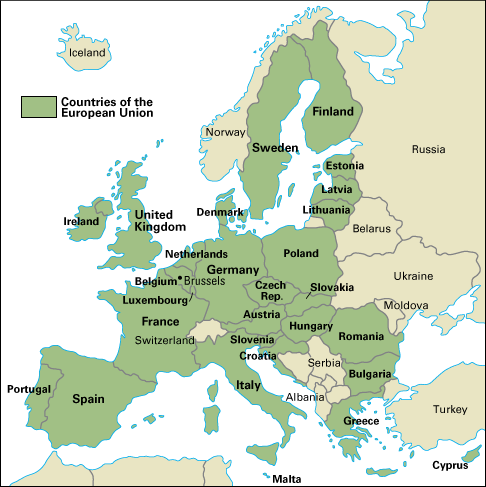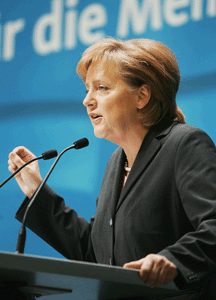Greece Gets a Reprieve
Thursday, February 26th, 2015February 26, 2015
The crisis surrounding Greek debt eased this week. Yesterday, German Chancellor Angela Merkel held a test ballot among MP’s (members of parliament) in her party and in coalition with her party to see if the proposed four-month extension on financial aid to Greece would pass in the German parliament. Because Germany is a financial powerhouse in the European Union (EU), its approval is necessary for the planned aid to go forward. Merkel’s center-right coalition, made up of the Christian Democratic Union (CDU) and Christian Social Union in Bavaria (CSU), voted in favor of the aid package to Greece by 311 to 22.
The Greek economy is important to more than just Greece and its citizens. Greece is a member of the European Union and belongs to the eurozone—that is, it is one of 19 EU countries that use the euro as their currency. Greece cannot claim it is bankrupt and renege on its debt agreements while it remains in the EU. The EU has a central bank, the ECB, that is expected to prevent any member nation from defaulting on its obligations. To default, Greece would have to leave the European Union and the eurozone. The effect on the global economy of such a move as Greece’s default on its creditors and its return to its old currency, the drachma, would be worrying enough. But were Greece to leave the EU, it would call the entire enterprise of European unification and a shared currency into question.

Alex Tsipras, leader of the anti-austerity party Syriza, speaks to supporters after his party won the parliamentary elections in Greece on Jan. 25, 2015. (Credit: AP Photo)
In order to obtain an agreement for financing, the new government of Greece, swept into power on anti-austerity sentiment in a nation that has spent the last five years in recession, agreed to certain conditions. Some of the conditions reflect the deep divisions between Germany, the creditor nation, and Greece, the debtor nation. Germany has loaned billions of euros to Greece via the EU over the past five years, and it wants Greece to keep its agreement to pay that money back. Greece has spent five years living under the austerity plan of the European Union; it has had a shrinking economy for six years; and it currently has an unemployment rate of nearly 26 percent. When the government of Greece, for example, pledges to increase housing and medical care for the poor without increasing public spending, it seems as if those two goals will be difficult to reconcile. Some experts feel the promises Greece made this week to obtain a four-month loan extension will be impossible to keep.
Other World Book articles:





